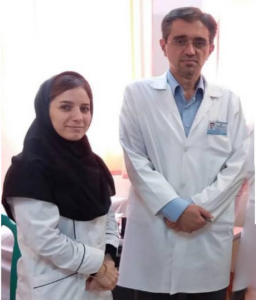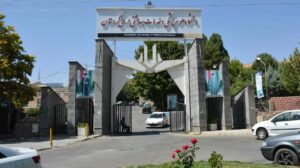Addressing Antimicrobial Stewardship Challenges in Paediatric Patients in Hospitals in Sanandaj, Western Iran
 A recent study compared antimicrobial prescribing patterns in paediatric patients from three hospitals in Sanandaj, Western Iran, with paediatric patients from hospitals in Southeast Asia and Europe. Standardised 2019 Global-PPS data were used. The study was conducted by Dr. Jafar Soltani, Associate Professor of Pediatric Infectious Diseases, and his team at Kurdistan University of Medical Sciences in Iran.
A recent study compared antimicrobial prescribing patterns in paediatric patients from three hospitals in Sanandaj, Western Iran, with paediatric patients from hospitals in Southeast Asia and Europe. Standardised 2019 Global-PPS data were used. The study was conducted by Dr. Jafar Soltani, Associate Professor of Pediatric Infectious Diseases, and his team at Kurdistan University of Medical Sciences in Iran.
Results
The research showed that 74.9% of admitted children and neonates in Sanandaj received antibiotics, which was higher than antibiotic prevalence observed in Southeast Asia (56.9%) and Europe (28.6%). Moreover, 83% of antibiotics prescribed in Sanandaj were classified as Watch antibiotics, raising concerns about their appropriate use.
Strikingly, no single health-care associated Infection (HAI) was recorded during the entire study period in Sanandaj hospitals, as compared to Southeast Asian (5.3%) and European hospitals (3.6%).
Identified barriers
A notable challenge in Sanandaj hospitals is the lack of laboratory diagnostic capacity, which only leads to empirical prescribing without microbiological data. This underscores the urgent need for enhancing diagnostic capabilities to guide appropriate treatment decisions.
Other barriers to implementing effective antimicrobial stewardship actions in Sanandaj include economic factors, such as the easy availability and low cost of antimicrobials, and regulatory challenges, including the lack of boundaries between over-the-counter drugs and prescription antimicrobials.
The way forward
This study underlines the need for urgent interventions to improve antimicrobial prescribing practices among children in Sanandaj hospitals. Actions include enhancing laboratory diagnostic capacity, strengthening antimicrobial stewardship programs, and providing education and training on appropriate antibiotic use which are essential steps to mitigate the risk of antimicrobial resistance and ensure optimal patient care.
Conclusion
This study serves as a call-to-action for hospital management and policymakers to prioritise antimicrobial stewardship efforts in paediatric settings in Sanandaj, Iran; ultimately safeguarding the effectiveness of antibiotics for future generations.
Read the paper here.

